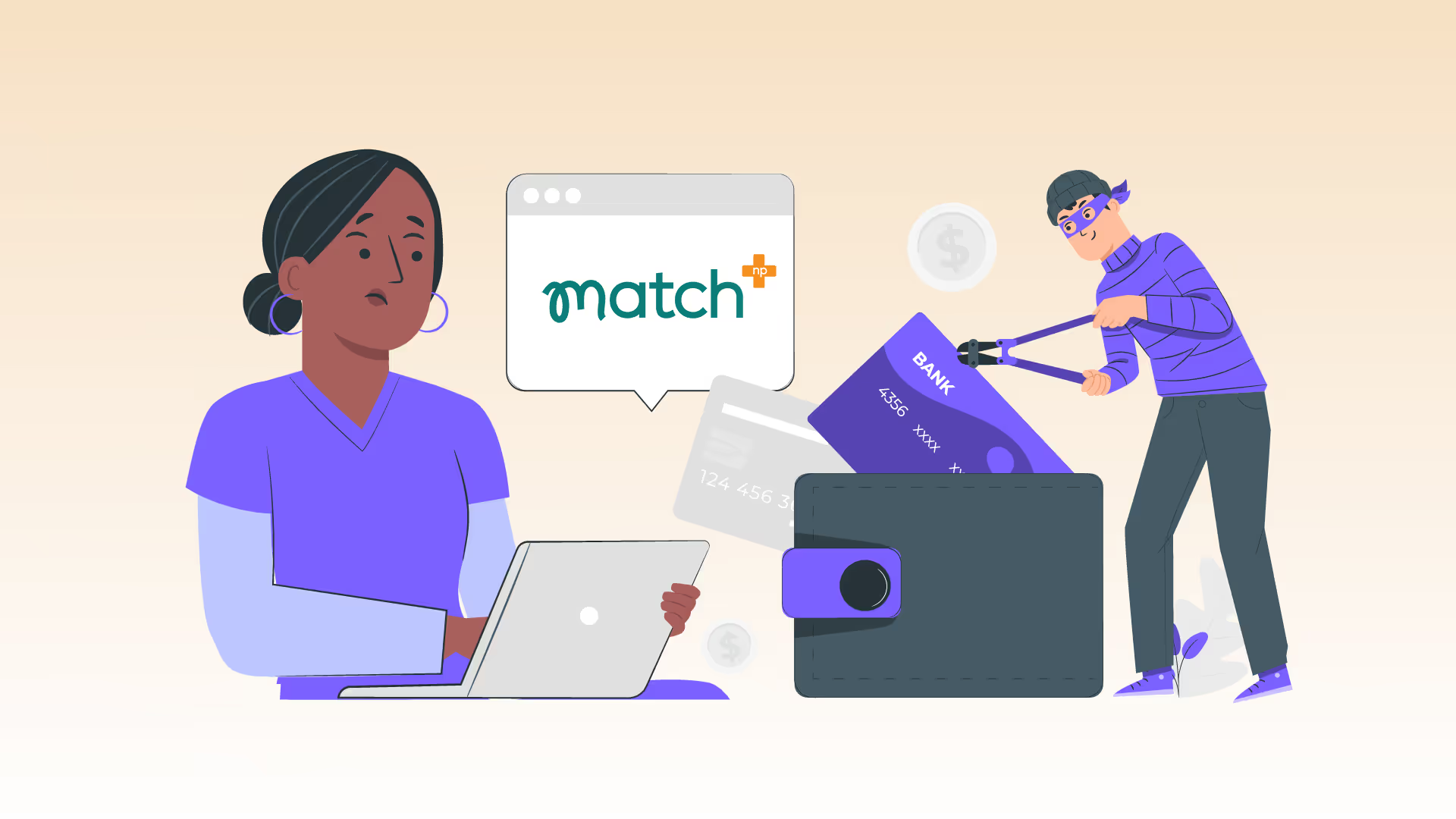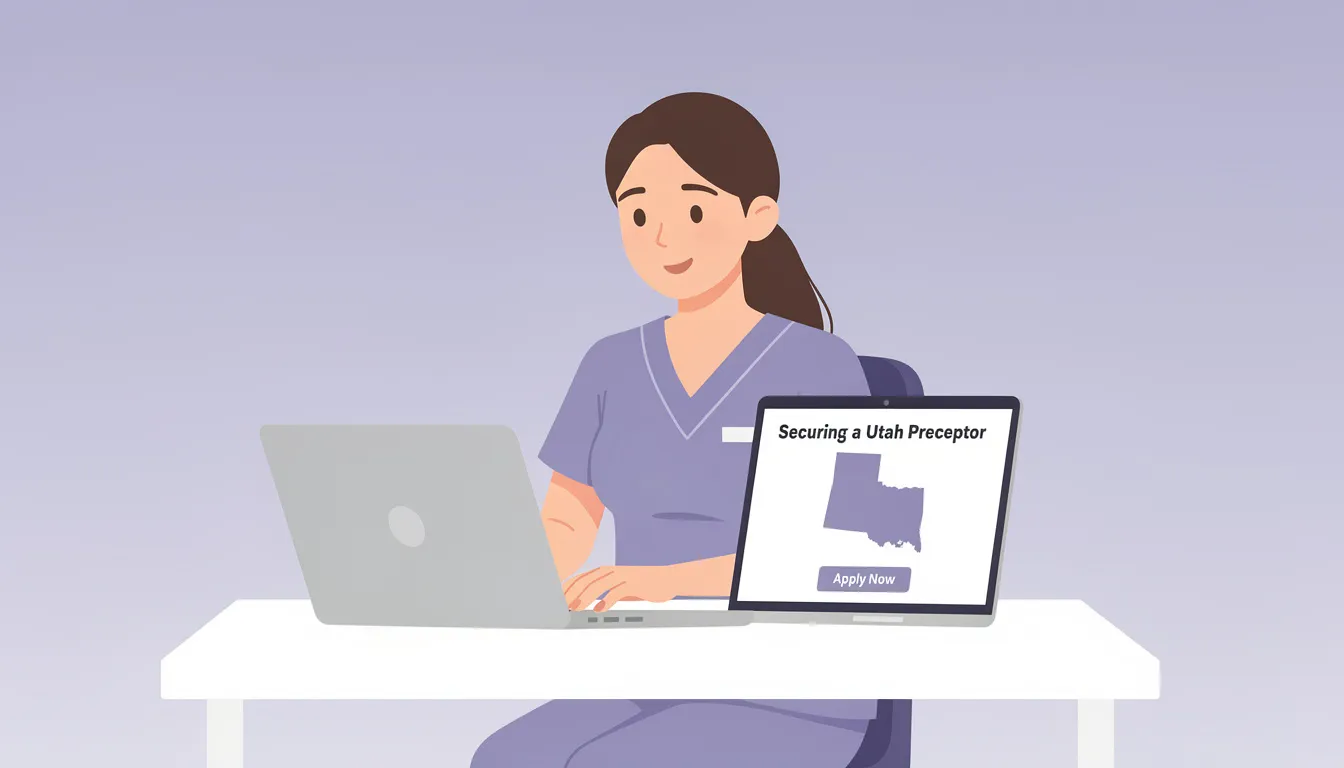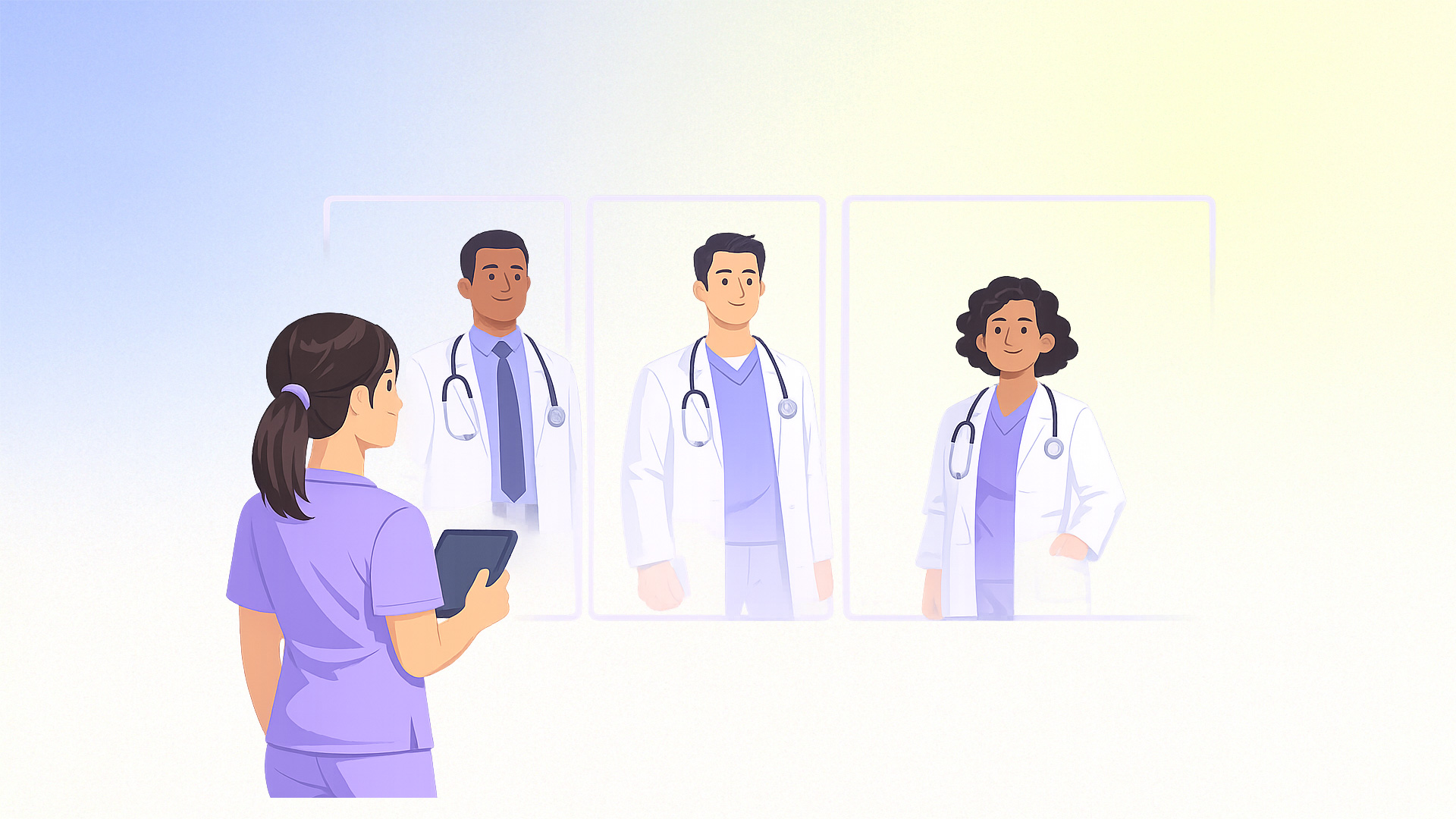No, MatchNP is not a scam—but whether it’s worth the cost depends on your timeline, location, and how much support you need. These services were built to help NP students fill a gap in the clinical placement system, but quality and results vary widely.
MatchNP and the Cost of Delays: What’s the Real Investment?
What’s more expensive: paying for an NP preceptor matching service, or delaying your clinical rotation and pushing back graduation by a semester (or two)?
For a growing number of nurse practitioner students, this is not a hypothetical, it’s the math behind every decision they make while navigating graduate nursing programs. As more schools shift the burden of securing clinical placements onto students, services like MatchNP have stepped in to fill the gap.
The pitch is straightforward: if you can’t find the right preceptor on your own, a platform like MatchNP will help match you with one fast. They advertise a streamlined process, access to a nationwide network of clinical preceptors, and support with all the necessary paperwork. And for students who’ve hit dead ends cold-calling clinics or refreshing Facebook groups, it sounds like a lifeline.
But is it one? Or just another shortcut with a price tag and fine print?
In this blog, we’ll look beyond the promises and focus on the real question: not just “Is MatchNP a Scam?”, but “Is it worth it?” If you’re trying to protect your timeline, secure your rotation, and move forward in your NP education, you deserve answers that make sense.
Let’s break it down.
Why NP Preceptor Matching Services Like MatchNP Exist
If the system worked the way it was supposed to, nurse practitioner students wouldn’t be reading this blog.
You’d be in your clinical rotation already, working with a supportive NP preceptor, building skills in primary care, women’s health, or pediatrics, and moving one step closer to graduation.
But for many graduate nursing programs, the expectation is this: you find the preceptor, you handle the logistics, and good luck with that.
Here’s the reality:
- Schools are enrolling more NP students than ever, but not expanding support systems for clinical placements.
- Preceptors are stretched thin, with many already mentoring students, managing full patient loads, or not being compensated at all.
- Students are left cold-calling clinics, emailing clinical sites, and scrambling through Facebook threads in search of a lead—often while juggling work, class, and family.
Every delayed rotation is a delayed graduation. Every delayed graduation is a delay in sitting for boards, getting licensed, and earning an NP salary. If you do the math, a few months lost could cost thousands—far more than what most preceptor finder services charge.
That’s why services like MatchNP exist. Not because students are lazy. Not because schools don’t care. But because there’s a gap between the clinical needs of the next generation of NPs and the infrastructure that’s supposed to support them.
Companies like MatchNP saw that gap and built a platform to fill it. Whether it’s a perfect solution? That’s up for debate.
But if you’re weighing the cost of using a preceptor matching service, it helps to start with this: it’s not just a fee, it’s a way to protect your time, your degree, and your earning potential.
What Students Are Saying: Cost-Smart or Location-Limited?
It’s fair to say that when students hear about or read MatchNP reviews or any other paid preceptor matching services, their first reaction isn’t always excitement. It's skepticism. You’ll see questions like, “Has anyone used this?”, “Is it legit?”, and yes—even, “Is this a scam?”
Totally understandable. Nurse practitioner students are juggling work, school, and tuition and dropping hundreds or thousands of dollars on something as crucial as a clinical rotation can feel risky.
But when you dig into real student feedback, on forums like Reddit, AllNurses, or in NP Facebook groups, you’ll find the conversation is more nuanced.
Many students speak positively about the experience: using a nurse practitioner matching service helped them secure hard-to-find clinical placements, especially in specialties like primary care, pediatrics, and acute care.
The ability to match students quickly and handle all the necessary paperwork was a huge relief, particularly for those with limited time or school support.
Others point out the downsides: in some regions, the nationwide network may feel more like a zip-code guessing game, with limited availability in certain areas. Some students ended up paying for services they didn’t ultimately use, not because the platform failed, but because they found a preceptor elsewhere first or couldn’t coordinate with their school in time.
In short: feedback isn’t black and white. These platforms seem to work best for students who do their research, ask detailed questions, and stay active in the process. Like any investment in your NP education, your outcome depends a lot on timing, location, and how well the service fits your clinical needs.
What Nurse Practitioner Preceptor Matching Services Offer and What It’ll Cost You
Here’s the part where we stop guessing and start doing math.
Using a preceptor matching service isn’t just about convenience, it’s a financial decision. So let’s talk about what you’re actually paying for, and whether the value lines up with the price.
Most matching platforms, including companies like MatchNP, FindAPreceptor, Preceptor Tree, and NPHub, offer a similar menu of services. They typically promise to:
- Connect you with a nurse practitioner preceptor who matches your clinical needs
- Offer access to a nationwide network of experienced preceptors
- Handle all the necessary paperwork, affiliation agreements, and communication with your school
- Provide support through the entire process, from application to rotation start date
- Cover various specialties like primary care, pediatrics, acute care, women’s health, and more
The cost? It varies.
Some platforms charge by clinical hour, with rates often ranging from $13 to $25/hour, depending on the specialty, location, and urgency. Others offer flat fees for specific placements or tiers of services. Most also require a deposit, commonly around $500, to begin the matching process. That deposit is often applied toward the final cost, but policies vary, especially if you're not placed.
That means for a 180-hour rotation, you might spend between $2,400 and $4,000. That’s a serious number, but so is the cost of losing a semester. Factor in delayed graduation, additional tuition, lost income, and postponed licensure, and suddenly, that upfront fee feels more like protection than a gamble.
To be clear: these platforms don’t guarantee the perfect preceptor. But when they work, they save time, stress, and potentially thousands in future earnings.
Still, it's not just about price, it's about fit. Let’s talk about how to tell whether a service is actually worth it for you.
So… Is MatchNP a Scam or Not?
Let’s get this out of the way: no, nurse practitioner preceptor matching services like MatchNP aren’t scams.
These platforms were created in response to a broken system, one where nurse practitioner students are expected to secure their own clinical placements, often without any guidance or resources from their graduate nursing programs. Matching services step in to help you get the one thing that’s standing between you and graduation: a clinical preceptor.
But just because it’s not a scam doesn’t mean it’s a slam dunk, either.
Some students walk away with a seamless clinical experience, an NP preceptor who becomes a mentor, and a clear path to graduate on time. Others may find that the location isn’t ideal, the specialty is limited, or that their school has specific requirements the service couldn’t meet in time.
So how do you know if it’s the right call?
Start with the cost of doing nothing.
Delaying your rotation could mean an extra semester of tuition, living expenses, and lost income. That adds up fast, easily exceeding $10,000 or more. Suddenly, paying $2,500 for a guaranteed clinical match doesn’t sound quite so outrageous.
Then factor in your situation:
- Are you in a rural or saturated area where finding a preceptor is extra competitive?
- Are you weeks from your deadline with no leads?
- Do you need specialties like pediatrics, acute care, or women’s health, where options are limited?
If any of that rings true, a matching service might not just be a backup plan, it might be the smartest investment you can make in your NP education.
The key is choosing a service that treats your rotation like it matters. One that prioritizes quality, transparency, and actually follows through.
Let’s talk about one that does.
Why NPHub Was Built in the First Place
We didn’t create NPHub just to jump on a trend, we built it because we’ve seen the toll this takes on nurse practitioner students.
We’ve talked to students who were weeks from their rotation start date with no preceptor, who were ready to graduate but couldn’t because no one would return their emails. Students paying tuition, working jobs, raising families—and somehow expected to become their own clinical coordinator, too.
Enough was enough.
So we created a preceptor matching service that actually works for you, not just around you. Here’s what that looks like in practice:
A Broader, Smarter Network
Our team has built one of the most extensive nationwide networks of nurse practitioner preceptors out there. From pediatrics and primary care to urgent care, acute care, women’s health, and more—we’re constantly adding new preceptors across various specialties to meet the real needs of today’s nursing programs.
A Process That’s Transparent, Start To Finish
With NPHub, what you see is what you get. No surprise charges. No vague promises. We walk you through the matching process, help with all the necessary paperwork, and work directly with your school to make sure your placement checks every box.
A Team That Doesn’t Ghost You
We don’t vanish after you hit “submit.” We stay in touch through the entire process, help with follow-ups, troubleshoot if things shift, and make sure your clinical hour requirements are met. If your clinical match falls through? We fix it. Period.
A Mission Built Around Students
This isn’t just about filling slots. It’s about building up the next generation of NPs with better clinical education, stronger mentoring, and less stress. Our goal isn’t just to help you graduate on time—it’s to help you feel confident heading into your profession.
You’ve got enough to manage. Let us handle this part.
If you’re weighing the cost of a preceptor matching service, make sure you’re not just paying for convenience, you’re investing in results.
Let’s make it count.
Frequently Asked Questions (FAQs)
1. What Makes Clinical Placement So Difficult for NP Students Right Now?
The demand for nurse practitioner education has skyrocketed, but preceptor availability hasn’t kept pace. Many clinicians are already booked, uncompensated, or overwhelmed—leaving students scrambling to secure rotations on their own.
2. Is It Better to Wait and Try to Find a Free Preceptor Myself?
Maybe—but it’s risky. Students who wait too long can miss rotation windows, delay graduation, and lose time and income. A service may be worth it if your deadline is close and your options are few.
3. Does Using a Matching Service Affect How Schools View Your Placement?
Not if the preceptor meets your program’s criteria. Always get school approval before finalizing anything, and make sure the service handles documentation properly.
4. What Happens After I Pay the Deposit?
Most services begin searching their network, verify site availability, and start school paperwork. Be proactive—ask for updates, timelines, and what happens if they can’t match you in time.
5. Why Do Prices Vary So Much Between Services?
Factors include location, specialty, urgency, and how much support is included. Services that provide hands-on guidance and paperwork handling often charge more—but also offer more peace of mind.
6. Can I Use a Matching Service for Just One Rotation, or All of Them?
You can use them for one or multiple. Some students just need help with a tough specialty (like pediatrics or psych), while others use a service throughout their program to stay on track.
7. How Early Should I Start Looking for a Preceptor?
At least 3–6 months in advance. The earlier you start, the better your options. Some students begin planning 9–12 months ahead—especially in saturated areas.
8. What’s the Biggest Red Flag When Choosing a Preceptor Service?
Vague answers, unclear refund policies, and limited communication. If they can’t explain their process or provide real timelines, that’s a sign to pause.
9. Will I Get to Talk to My Preceptor Before Committing?
That depends on the service. Some allow preceptor contact before final confirmation; others only introduce you after you’ve paid. Always ask how and when you’ll be connected.
10. What Makes NPHub Different From Other Services?
We provide full transparency, fast support, and only work with preceptors who’ve been vetted and reviewed. No hidden fees. No ghosting. Just results that help NP students graduate on time.
Key Terms and Definitions
- Preceptor
A licensed healthcare provider (usually an NP, MD, or PA) who supervises and mentors NP students during their clinical rotations. - Clinical Rotation
A required hands-on training period in a real healthcare setting where NP students apply what they’ve learned in the classroom under the supervision of a preceptor. - Preceptor Matching Service
A third-party company that helps NP students find and secure clinical placements, often for a fee. Services may include paperwork support, communication with schools, and specialty matching. - Credentialing Documents
The paperwork students must submit for clinical approval, including immunization records, resumes, malpractice insurance, background checks, and more. - Guaranteed Placement
A service offering that promises students will be matched with a preceptor—or provided a refund—under specific conditions outlined in the company’s policy. - Refund Policy
The terms and conditions under which a student may receive a full or partial refund if a placement falls through or isn’t completed as expected. - Specialty Match
A clinical placement that aligns with a student’s required or desired focus area, such as pediatrics, mental health, women’s health, or primary care. - Vetted Preceptor
A preceptor who has been screened by the matching service to ensure they are licensed, experienced, and meet educational and professional requirements. - Placement Coordinator
The staff member from the matching service responsible for helping students with logistics, paperwork, updates, and communication during the matching process.
About the author
- NPHub Staff
At NPHub, we live and breathe clinical placements. Our team is made up of nurse practitioners, clinical coordinators, placement advisors, and former students who’ve been through the process themselves. We work directly with NP students across the country to help them secure high-quality preceptorships and graduate on time with confidence. - Last updated
May 24, 2025 - Fact-checked by
NPHub Clinical Placement Experts & Student Support Team - Sources and references
Find a preceptor who cares with NPHub
Book a rotation.webp)








.webp)


.webp)



%20(3)%20(2).svg)
.webp)